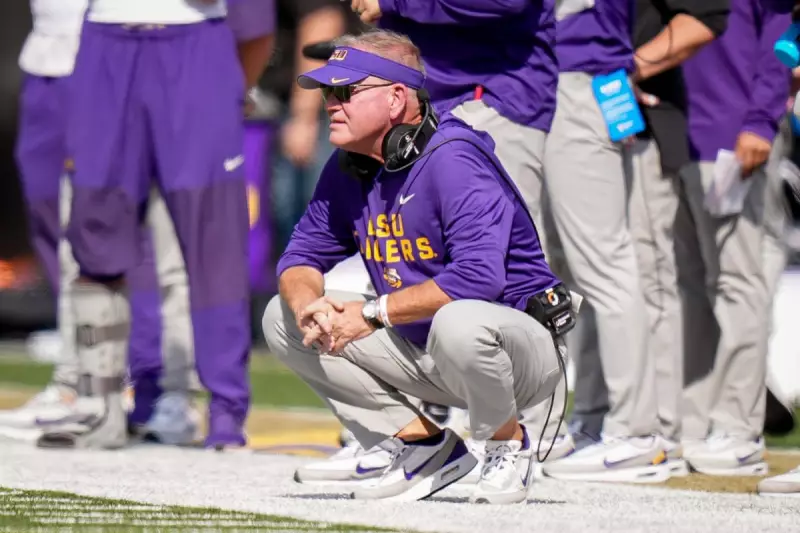
American college football is facing renewed scrutiny over its financial practices as Louisiana State University (LSU) prepares to pay departing head coach Brian Kelly what could become one of the largest buyouts in sporting history.
The Staggering Numbers Behind the Departure
According to reports emerging from the United States, Kelly stands to receive an eye-watering payout potentially exceeding £60 million following his sudden exit from the LSU programme. This colossal sum stems from contract clauses triggered when the coach left before the completion of his ten-year, $100 million contract.
The potential payout has ignited fierce debate about financial priorities within American college sports, where coaching salaries and termination packages regularly dwarf funding for academic programmes and student facilities.
A Pattern of Lavish Spending in College Sports
Kelly's situation is far from isolated in the high-stakes world of NCAA football. The Guardian's analysis reveals that public universities across America have committed nearly $1 billion in recent years to coaches who were fired or left for other positions.
This financial landscape includes:
- Texas A&M's $75 million buyout of Jimbo Fisher last year
- Auburn University's $21 million payment to dismiss Bryan Harsin
- Numerous seven-figure settlements becoming commonplace
Mounting Criticism and Calls for Reform
Critics argue these enormous financial commitments highlight a distorted value system within collegiate athletics. "It's absolutely obscene," said one sports economist. "Universities are pleading poverty when it comes to academic funding while writing nine-figure checks to football coaches."
The debate comes at a sensitive time for American universities, many of which have recently raised tuition fees while cutting academic programmes and staff positions.
What's Next for LSU and College Football?
As LSU begins its search for a new head coach, the financial implications of Kelly's departure will loom large over the programme. The substantial financial commitment to a departed coach may limit resources available for facilities, assistant coaches, and recruiting efforts.
This case has intensified calls for greater financial transparency and responsibility in college sports, with many questioning whether the current model is sustainable for educational institutions.





